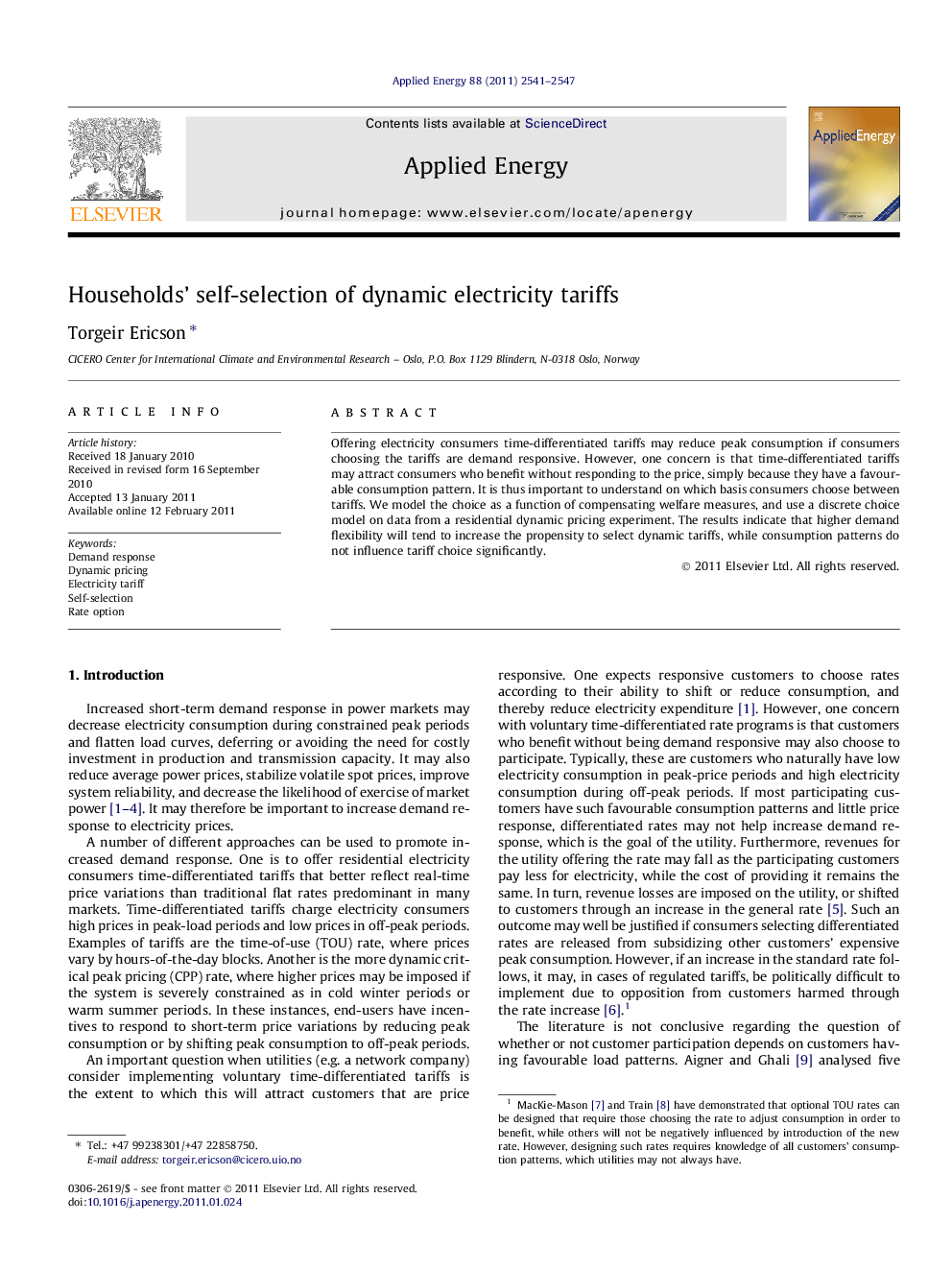| Article ID | Journal | Published Year | Pages | File Type |
|---|---|---|---|---|
| 244406 | Applied Energy | 2011 | 7 Pages |
Offering electricity consumers time-differentiated tariffs may reduce peak consumption if consumers choosing the tariffs are demand responsive. However, one concern is that time-differentiated tariffs may attract consumers who benefit without responding to the price, simply because they have a favourable consumption pattern. It is thus important to understand on which basis consumers choose between tariffs. We model the choice as a function of compensating welfare measures, and use a discrete choice model on data from a residential dynamic pricing experiment. The results indicate that higher demand flexibility will tend to increase the propensity to select dynamic tariffs, while consumption patterns do not influence tariff choice significantly.
